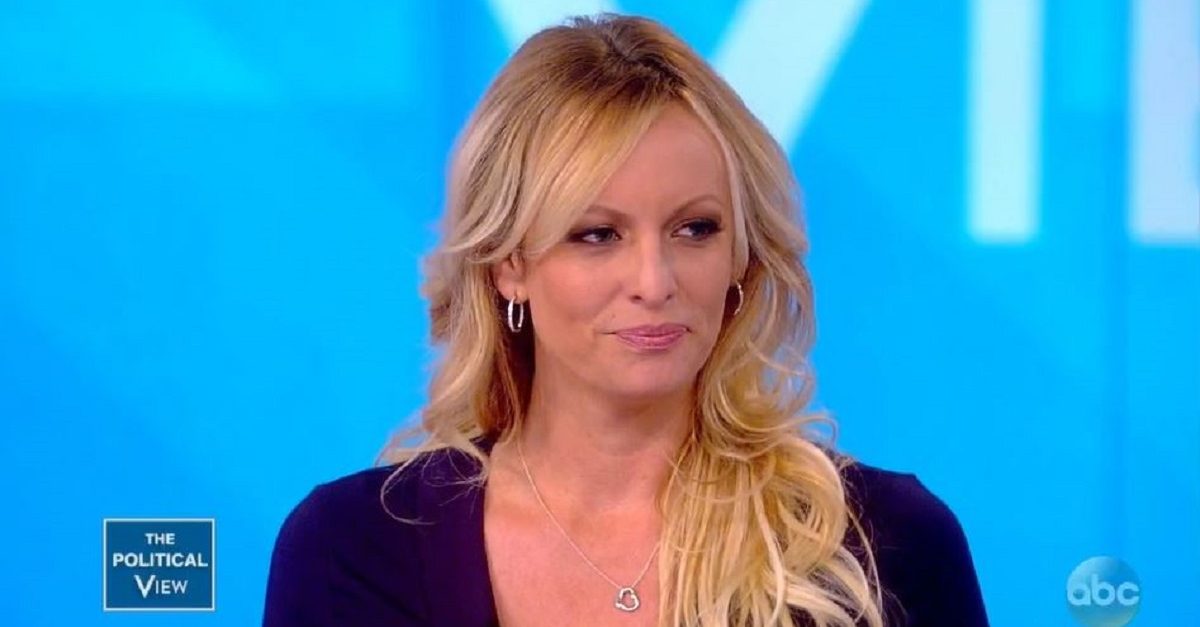
Michael Avenatti filed a notice with the court Monday evening in his client Stormy Daniels‘ case against Michael Cohen and Donald Trump over the hush agreement she signed about an affair she allegedly had with Trump in exchange for $130,000. The lawsuit has been going on for the better part of this year, with the relevant facts being connected to subsequent criminal charges against Cohen for campaign finance violations that Cohen said he did at Trump’s direction. It also led to an added defamation claim against Cohen. After all this, Avenatti’s associate Ahmeed Ibrahim and Cohen’s attorney Brent Blakely got together last week to discuss reaching an agreeable solution to the defamation issue.
It didn’t work.
In a sworn declaration, Ibrahim said that he met with Blakely to discuss the issue. “However, we were unable to reach a resolution and Mr. Blakely confirmed that Mr. Cohen would oppose Plaintiff’s motion,” Ibrahim said. That motion is related to Avenatti’s desire to drop the defamation claim against Cohen. Avenatti echoed this in his court filing, saying, “the parties were unable to reach a resolution.”
All of this also led to some contentious emails between the two sides. In an email chain between Ibrahim and Blakely, the two sides discussed the possibility of Daniels’ filing an amended complaint that would not include the defamation claim that she currently has against Cohen. That claim was based on Cohen’s statement that “Just because something isn’t true doesn’t mean that it can’t cause you harm or damage,” which Daniels claims was a false and defamatory statement implying that her allegations of an affair with Trump are false.
Daniels recently lost a separate defamation case against President Trump, and Blakely asked if the decision to drop the defamation claim against Cohen was “simply to avoid an adverse ruling.” Ibrahim avoided this question, but questioned why Cohen would oppose a motion to drop the defamation claim. Blakely said because Cohen’s argument was that the defamation claim violated California’s anti-SLAPP law against lawsuits meant to attack someone’s free speech on a matter of public concern. Blakely said in an email that the law “forbids any amendment,” and noted, that Avenatti only suggested dropping the claim “after losing on Trumps’s motion, which was not as strong as Cohen’s.”
It appears that Blakely believes that either way, the defamation case is going away, but he would rather it come from a judge’s decision on the record.
Blakely did say that Cohen might agree to a resolution that involved dismissing the defamation claim with prejudice, and also paid Cohen for his fees.
Law&Crime reached out to Avenatti and Blakely for additional comment but they have yet to respond.
Editor’s note: An earlier version of this article said that the resolution that was discussed was in regards to the whole case, which also includes the issue of whether or not the hush agreement is enforceable, instead of just the defamation claim.. This is not the case.
[Image via ABC screengrab]
Have a tip we should know? [email protected]